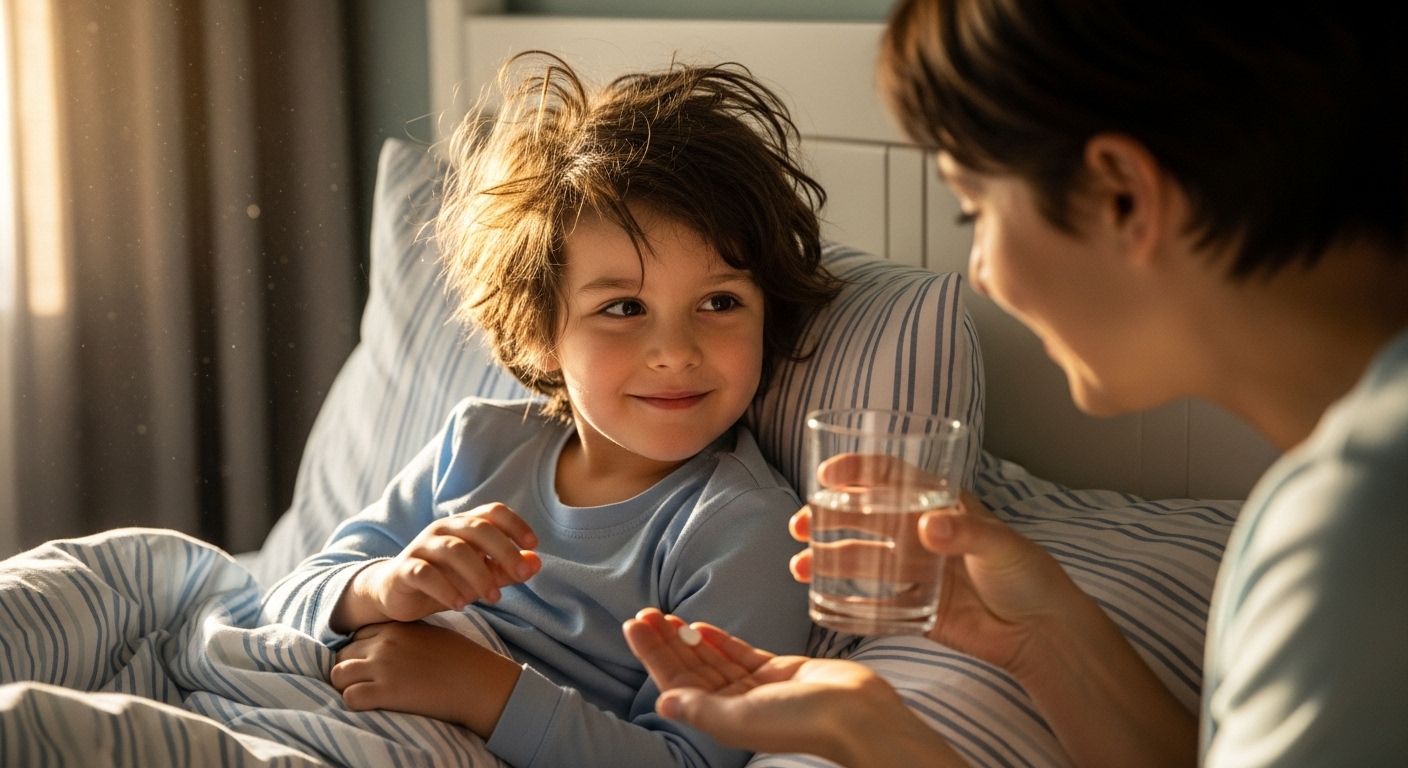Dr. Kumar’s Take:
This systematic review looked at whether medical treatments like antibiotics, IVIG, and steroids—or surgical options like tonsil and adenoid removal—help improve OCD symptoms in kids with PANDAS or PANS.
While both surgery and medication showed benefits, one treament didn’t stand out over the others. This highlights the urgent need for larger, high-quality studies with clear protocols. Until then, treatments should be individualized and often involve a combination of approaches.
Key Takeaways:
✔ Surgery (like tonsil and adenoid removal) may help some children with PANDAS but lacks strong evidence.
✔ Medications such as antibiotics, IVIG, and steroids can help reduce OCD symptoms in kids with PANDAS
✔ There is no one-size-fits-all solution. Individualized care is essential.
Actionable tip:
If your child has sudden-onset OCD or tics, especially after a strep infection, ask your doctor about the possibility of PANDAS. Because of the low risk and quick administration, antibiotics should be first line. Early treatment may improve outcomes.
Brief Summary:
This 2022 systematic review and meta-analysis reviewed 11 studies covering 473 children with PANDAS or PANS. The goal was to find out which treatments improved obsessive-compulsive disorder (OCD) symptoms. Some children improved after surgery (like tonsil removal), while others responded to antibiotics or IVIG. However, no single treatment stood out as clearly better. The research showed promise but also revealed how much more we still need to learn about treating this condition.
Study Design:
- Type: Systematic review and meta-analysis
- Participants: 473 children diagnosed with PANS or PANDAS
- Treatments compared:
- Surgical: Tonsillectomy and adenoidectomy
- Medical: Antibiotics, IVIG, NSAIDs, corticosteroids
- Main outcome: Changes in OCD symptoms after treatment
- Studies included: 11 (6 in meta-analysis)
Results:
- Surgery Group: 62% of kids improved
- Medication Group: 57% improved with treatments like antibiotics or IVIG
- Best odds ratio (OR): Surgical group had OR = 2.17 (p = 0.02) in one analysis
- Biggest limitations: Small sample sizes, mixed treatment protocols, no unified guidelines
How Do These PANDAS Treatments Work?
Surgical Treatments:
Removing the tonsils and adenoids may reduce exposure to strep bacteria, potentially calming the immune system. Some small studies showed improvement in OCD after surgery, especially in kids who didn’t respond to antibiotics. But results are mixed, and some studies found no benefit.
Medical Treatments:
- Antibiotics like penicillin or azithromycin aim to eliminate the strep bacteria believed to trigger the autoimmune reaction in PANDAS.
- IVIG provides a high dose of antibodies from donors, meant to “reset” the immune system.
- Steroids help calm inflammation in the brain that may be causing symptoms.
- NSAIDs like ibuprofen have been tried but showed little consistent benefit.
No treatment stood out as a cure-all. Many kids need a mix of approaches.
Related Studies and Research
PANDAS Antibiotics Prevention Study – Investigates how antibiotic use affects recurrence and prevention of PANDAS symptoms.
Plasma Apheresis for Severe PANDAS Symptoms – Analyzes therapeutic plasma exchange in children with severe PANDAS.
PANS and Corticosteroids: A Study Review – Reviews outcomes of corticosteroid use during PANS flares.
Podcast: Could Your Child’s Behavior Changes Be Cured with an Antibiotic? – A deep dive into the link between strep infections and dramatic neuropsychiatric symptoms.
Frequently Asked Questions
What is PANDAS?
PANDAS stands for Pediatric Autoimmune Neuropsychiatric Disorders Associated with Streptococcal infections. It describes sudden-onset OCD and other neuropsychiatric symptoms after a strep infection.
Does surgery help kids with PANDAS?
Some kids improve after tonsil and adenoid removal, especially if they didn’t respond to other treatments. But not all studies agree, and surgery is not a guaranteed fix.
What about antibiotics or IVIG?
Antibiotics may help if started early, especially during acute strep infections. IVIG has shown promise in some cases, but results vary, and it’s expensive and not always covered by insurance.
Why is it so hard to treat PANDAS?
There is no standard treatment plan. Each child reacts differently, and studies often have small sample sizes, mixed treatments, and different timelines.
Conclusion
This review shows that both medical and surgical treatments can help children with PANDAS. OCD symptoms improved in many cases if prompt treatment is given. Since antibiotics are fast and acceisible, they should be first line in PANDAS treatment. Other therapies with great therapeutic potential are also available if antibiotics fail.
For families dealing with this condition, it’s essential to work with a doctor who understands PANDAS and can tailor treatment to your child’s needs.


